This seminar deals with transnational Canadian literature and its filmic adaptation from a variety of perspectives. As the themes of multiple identities and cultural pluralism, diaspora and belonging, intersecting memories and histories in the age of globalisation increasingly appear in Canadian writing and films since the 1980s and 1990s, it is important to adopt a transnational approach to understand Canadian literature and its filmic adaptation from a broader angle. The category transnational Canadian literature urges us to consider the social, political, and cultural contexts that have played a pivotal role in the making of contemporary Canadian literature, which is increasingly approached as a “collage of voices” (Kamboureli 1996, 1). The history of Canada is not merely about the legacy of colonization, but also of immigrants from different parts of the world, who discover ‘Canada as a new home’, while keeping a connection with their home/land left behind. By virtue of its multicultural history, any attempt at conceiving a homogeneous or unified view of Canadian culture will be misleading. Therefore, this course focuses on the diversity of Canadian literature from a transnational standpoint and encourages an approach beyond the more familiar labels like ‘minority’ or ‘marginal’ Canadian literature. As transnational is employed in the context of this seminar as a trope of cultural encounters, and transactions, borders are treated as a liminal space rather than a fixed entity, since they are transcended rather than guarded in the realms of selected texts. Keeping the transnational dimension in mind, we will read different novels (and watch the filmic adaptations available) by multicultural and multilingual Canadian writers whose transcultural connections are integral to their storyline. Also, students will read transnational theories by various theorists, particularly Ulf Hanner, Arjun Appadurai, Steven Vertovec, to analyse selected literary works. The main objective of the course is to guide students to think beyond the binary structure of ‘centre’ and ‘margin’ or ‘native’ and ‘migrant’, which has informed discourses of Canadian literature for quite some time and develop a more inclusive than an exclusive approach. Certainly, the First Nation, Aboriginal and indigenous writers as well as Francophone authors are as important a part of Canadian literary corpus as immigrant writers; however, this seminar focuses only on immigrant writers to narrow down the focus, to investigate more deeply the history of immigration in Canada and its reflection in literature, and to engage more critically with selected texts. Upon completion of the course, it is expected that students can show their understanding of transnational theory and literature in the form of class presentation and response or term paper.
- Trainer/in: Nadia Butt
- Trainer/in: Tasnim El Fechtali
- Trainer/in: Michelle Stork
